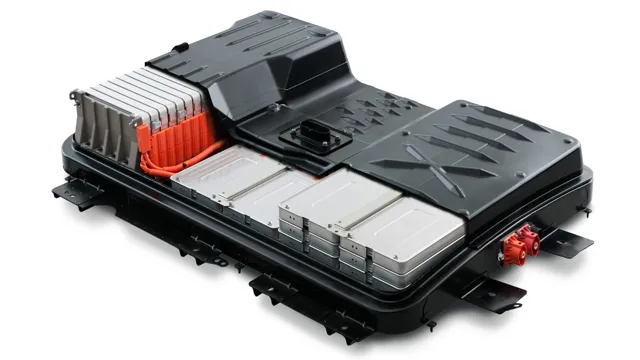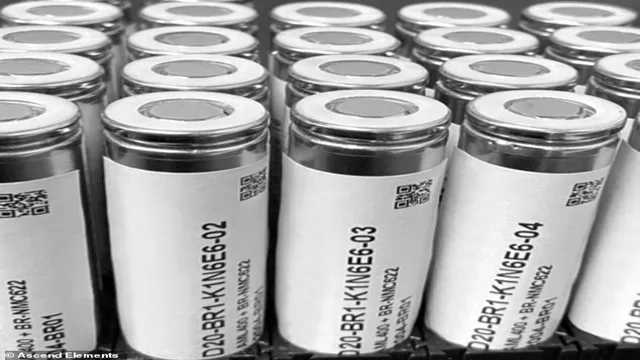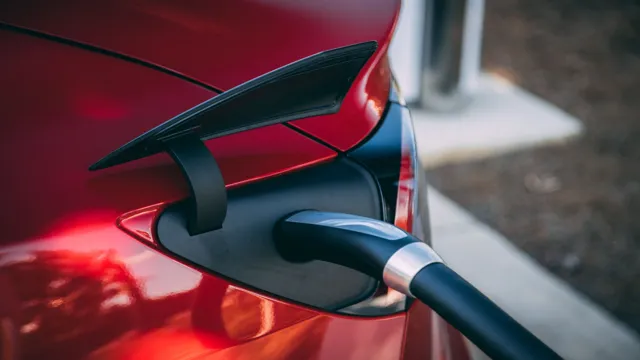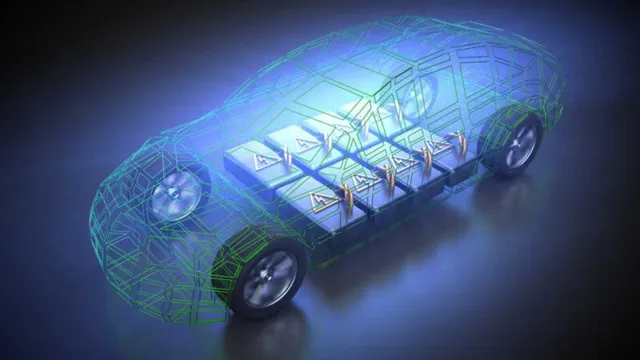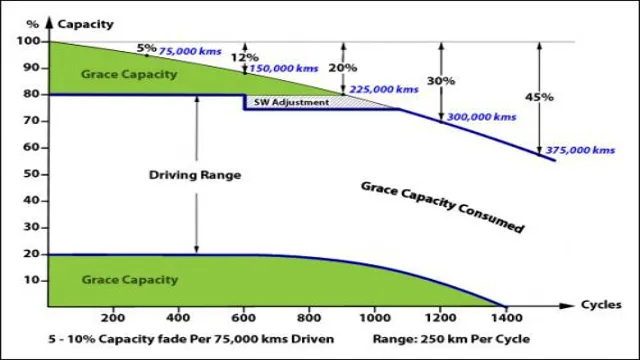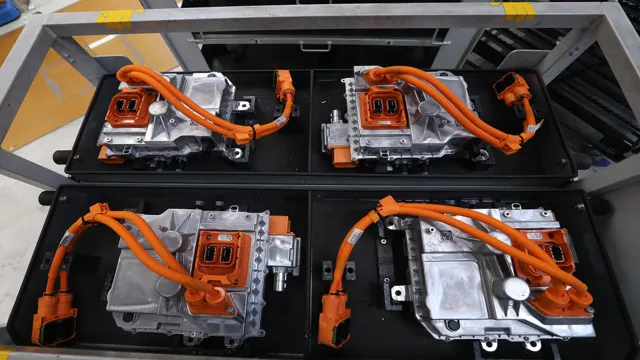Charged Up: Stay Current with the Latest Electric Car Battery News
Electric cars have been making waves in the automotive industry for some time now. With concerns about climate change and the need for sustainable transportation, more and more people are turning to electric vehicles as a viable option. One of the most critical factors in the success of electric cars is the battery technology that powers them.
In recent years, we have seen significant developments in battery technology that have greatly improved the range, performance, and affordability of electric cars. The latest electric car battery news is even more promising, as we continue to see innovations that will make electric cars even more practical and efficient. From advancements in solid-state batteries to improved charging infrastructure, the future of electric vehicles is looking brighter than ever.
But what does this mean for consumers? Will electric cars become the new norm? And how will these developments affect the automotive industry as a whole? In this article, we’ll explore the latest electric car battery news and what it means for the future of transportation. We’ll also discuss some key considerations for those who are interested in purchasing an electric car. Whether you’re a die-hard EV enthusiast or just curious about the latest technology, this article will provide you with the information you need to stay up-to-date on the latest developments in the electric car industry.
So buckle up and let’s dive in!
Tesla’s New 4680 Battery
Electric car batteries have been an ongoing topic of discussion within the automotive industry for a few years now, with advancements being made left and right. Recently, Tesla announced their new 4680 battery which is said to have five times more energy and six times more power, along with a longer lifespan. This battery will be a game-changer in the electric car industry, as it will allow for longer ranges and faster charging times.
Not only will this benefit the environment by reducing emissions, but also it will allow for electric cars to be used on longer journeys without the worry of running out of battery. This is an exciting development for the industry as a whole, and it will be interesting to see how other car manufacturers respond to Tesla’s latest advancement. It is clear that electric car batteries are only becoming more powerful and sophisticated, and the future of the automotive world looks increasingly electric.
Benefits of the 4680 Battery
Tesla’s new 4680 battery offers numerous benefits over its predecessors. Designed to be more energy-dense and longer-lasting, this innovative battery promises to revolutionize the electric car industry. Its larger size and cylindrical shape allow for more efficient cooling and heating, providing greater performance and range.
And with its new lithium-ion chemistry and simplified manufacturing process, this battery is more cost-effective and environmentally friendly than ever before. In short, the 4680 battery is a game-changing innovation that promises to make electric cars more accessible and practical for everyday drivers. So if you’re considering going electric, now is the time to start exploring what Tesla’s new battery technology can do for you.

Potential Impact on Electric Cars
Tesla has been making waves in the electric car industry with its latest innovation: the 4680 battery. This new battery promises increased range, faster charging times, and reduced costs, which could have a significant impact on the future of electric cars. With its larger size and improved energy density, the 4680 battery will allow Tesla to produce even more powerful and efficient cars, making electric vehicles more accessible and appealing than ever before.
This technology could potentially change the game for the entire industry, paving the way for a more sustainable and environmentally friendly future. The 4680 battery is a major breakthrough that could transform the way we drive, and with Tesla’s leading influence in the electric car market, it’s exciting to see what the future holds.
Battery Breakthroughs from GM and Ford
Electric car batteries news continues to dominate headlines, with GM and Ford announcing breakthroughs in the technology. GM announced its Ultium battery platform, which uses a proprietary low-cobalt metal oxide cathode and is expected to decrease their battery production costs by 60 percent. The platform is set to debut in the GMC Hummer EV and Cadillac Lyriq models.
Meanwhile, Ford has announced its IonBoost battery cells, which use a unique lithium-iron-phosphate chemistry that is cheaper and safer than traditional lithium-ion batteries. The company plans to use the battery cells in its upcoming electric F-150 pickup. These advancements represent major strides in the quest to create more efficient, affordable, and environmentally friendly electric vehicles.
As consumers continue to seek out more sustainable transportation options, electric car manufacturers will undoubtedly continue to push the boundaries of battery technology.
New Materials and Longer Range
The automotive industry is continuously striving to innovate and improve electric vehicle technology. Recently, there have been exciting breakthroughs in battery technology from both General Motors (GM) and Ford. GM has announced a new lithium-metal battery that has the potential to nearly double the range of their electric vehicles.
This new battery uses lithium-metal as the anode instead of the traditional graphite, resulting in improved energy density and longer range. Meanwhile, Ford is investing in solid-state battery technology, which could revolutionize the industry with its potential for safer, lighter, and longer-lasting batteries. As we move towards a more electrified future, these battery breakthroughs from GM and Ford are promising steps towards a more efficient and environmentally sustainable transportation system.
Competition for Tesla
The competition for Tesla in the electric vehicle market is heating up as both GM and Ford make breakthroughs in battery technology. GM recently announced its plans to develop a new Ultium battery system, which will reportedly offer a range of up to 400 miles on a single charge and reduce battery costs by up to 60%. Meanwhile, Ford is working on a new solid-state battery that could potentially double the range of its current electric vehicles.
With these advancements, it’s clear that GM and Ford are serious about challenging Tesla’s dominance in the electric vehicle market. However, it remains to be seen whether these breakthroughs will be enough to sway consumers away from the iconic Tesla brand.
Future Outlook for Electric Car Batteries
The future of electric cars looks bright with promising advancements in battery technology from both GM and Ford. GM recently announced their Ultium battery platform, which is capable of producing batteries that can power vehicles for up to 400 miles on a single charge. The platform is also modular, meaning it can be configured to fit a variety of vehicles.
Similarly, Ford has been working on their own electric vehicle battery system, called the IonBoost, which is said to be smaller, lighter, and more powerful than their current batteries. With the advancement of these battery technologies, electric vehicles will become more accessible and feasible for everyday use, helping to reduce emissions and combat climate change.
Government Incentives and Regulations
Electric car batteries news is dominated by government incentives and regulations lately. Governments worldwide are providing subsidies and tax credits to encourage people to buy electric cars, which in turn are driving the demand for electric car batteries. Moreover, government regulations mandating lower emission levels are making it compulsory for car manufacturers to produce electric vehicles.
However, government incentives alone may not be sufficient to sustain demand for electric vehicles, as battery costs remain very high. Despite recent advancements in technology, the cost of producing electric car batteries remains at least double that of producing internal combustion engines. Nevertheless, there is hope for the future, as research and development in electric car batteries continue to point towards a feasible solution for mass production at an affordable cost.
Financial Incentives for Electric Cars
One of the most significant factors driving the adoption of electric vehicles (EVs) is the financial incentives provided by governments across the world. Many countries have introduced generous financial incentives to stimulate sales of EVs, including tax incentives, grants, and rebates. Governments now offer purchasing incentives, such as tax credits for those who purchase an EV.
In some states, EV owners are exempt from emissions testing. In addition to incentives, there are also regulations in place such as restrictions on vehicle types. The aim is to make EVs more affordable for consumers and incentivize them to make the switch from gasoline-powered cars to electric cars.
As the number of EVs on the road grows, governments will likely continue to offer incentives to accelerate the transition away from fossil fuels. With these incentives, the cost of owning an electric vehicle can be lower than a traditional gasoline-powered car with the added benefit of being environmentally friendly, making it a win-win situation for people who care about both personal finance and the environment.
Environmental Regulations Driving Battery Innovation
In today’s world, the focus on pollution control is on the rise and is prompting the need for environmental regulations. Governments worldwide are striving to incentivize and encourage the development of green technologies. One such technology gaining momentum is batteries.
Governments are providing tax reductions and subsidies to battery manufacturers promoting the adoption of electric vehicles and renewable energy systems. In the United States, the recently elected administration has been vocal about making environmentally sustainable changes and promoting clean energy solutions. The Biden administration plans to invest in electric vehicles and charging infrastructure and offer incentives to increase the adoption of electric vehicles.
The government’s focus on creating a cleaner environment is driving the battery industry to innovate. We are experiencing a revolution in battery technology to create more efficient, affordable, and sustainable batteries.
Conclusion: Exciting Developments in Electric Car Batteries
In the exciting world of electric car batteries, the future is looking brighter than ever. With advances in technology and innovative new designs, the days of range anxiety and lackluster performance are becoming a thing of the past. From lithium-ion to solid-state, energy density is increasing while costs are decreasing, paving the way for electric vehicles to take over the roads.
So if you’re tired of the same old gas-guzzling routine, jump aboard the electric bandwagon – your wallet (and the planet) will thank you.”
FAQs
What is the latest news on electric car batteries?
The latest news is that researchers are developing a new type of battery that can charge electric cars faster and increase their range.
What are the different types of electric car batteries available?
The most common types of electric car batteries are lithium-ion, nickel-metal hydride (NiMH), and lead-acid batteries.
How long do electric car batteries last?
The lifespan of electric car batteries varies depending on the make and model of the vehicle, but they typically last between 8 and 10 years.
Are electric car batteries safe?
Yes, electric car batteries are generally safe. They are designed to withstand crashes, fire, and other hazards and are rigorously tested before being placed in vehicles.
